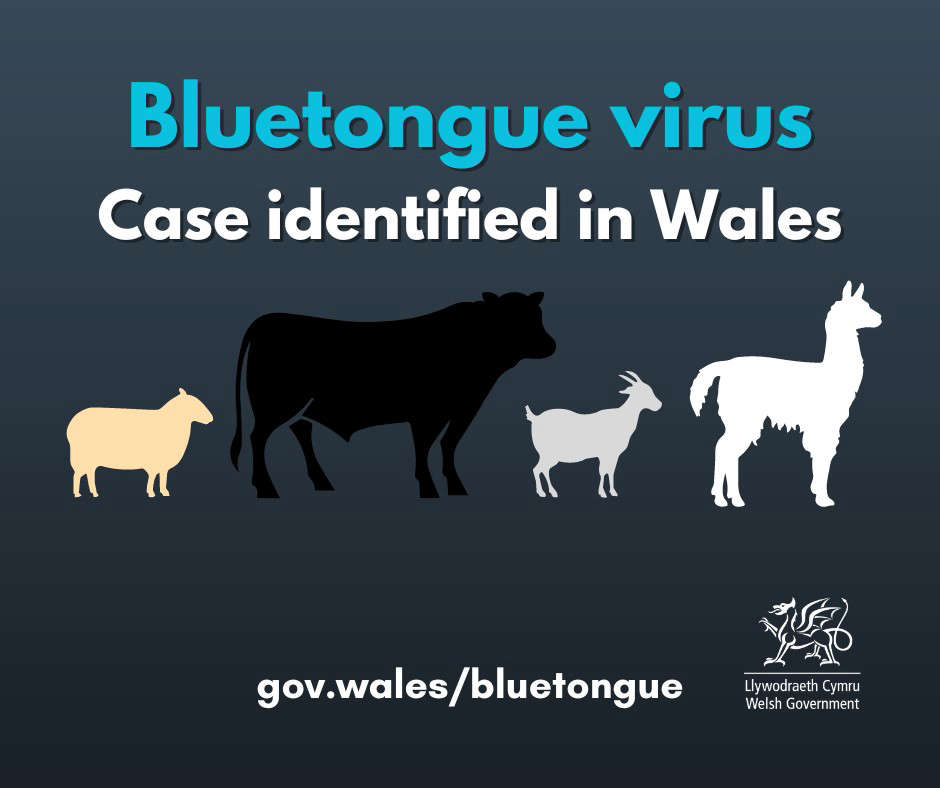
Restrictions have been lifted at two farms where a new strain of the bluetongue virus was discovered.
Three cases of BTV-3 were discovered among a flock of sheep in Gwynedd in September while a fourth was discovered on Anglesey days later.
In both cases, the animals had been moved to North Wales from the east of England
Official surveillance on both sites found no further evidence of infection and restrictions on both farms have now ended.
The Deputy First Minister said both incidents had been "near misses" but he warned further cases of the disease could emerge in the New Year.
Huw Irranca-Davies said: "I must re-emphasise the importance of responsible and safe sourcing of livestock to keep bluetongue out of Wales. Livestock movements pose by far the greatest risk to Welsh livestock."
"(The) Welsh Government’s policy of not allowing the movement of susceptible animals from the restricted zone in England, except to designated abattoirs will remain in place to underpin the efforts of industry."
He added: "It is crucial that farmers, vets and livestock traders work together and exercise caution, verifying the origin and health status of animals before movement."
"We have a collective responsibility to protect the health and welfare of our herds and flocks, and I urge all keepers to think not only of the risks that livestock movements could pose to their own animals, but also to their neighbours."
"While we cannot predict what the future will hold entirely, looking ahead to next spring we have to be prepared that the threat of Bluetongue may grow. We will continue working closely with APHA, the Pirbright Institute and the other UK administrations to ensure we are prepared."
"We are committed to the ongoing partnership work with our industry working group, to protect Wales, and consider their advice around important strategic decisions, such as the role of livestock vaccination against bluetongue."
Bluetongue is caused by a virus that is primarily transmitted by certain species of biting midges. It affects ruminants (such as cattle, goats, sheep and deer) and camelids (such as alpacas and llamas).
It does not affect people or food safety as the disease does not infect humans - it usually affects sheep, goats, cattle, deer and camelids.
The Welsh Government has urged farmers to report any suspected signs of bluetongue to the Animal and Plant Health Agency (APHA) immediately.







 Driver cleared of causing serious injury
Driver cleared of causing serious injury
 Former councillor banned for fraud
Former councillor banned for fraud
 More council cash for Ysgol Tryfan revamp
More council cash for Ysgol Tryfan revamp
 Stalker jailed for threatening voicenotes
Stalker jailed for threatening voicenotes
 Council faces fine for missing recycling target
Council faces fine for missing recycling target


